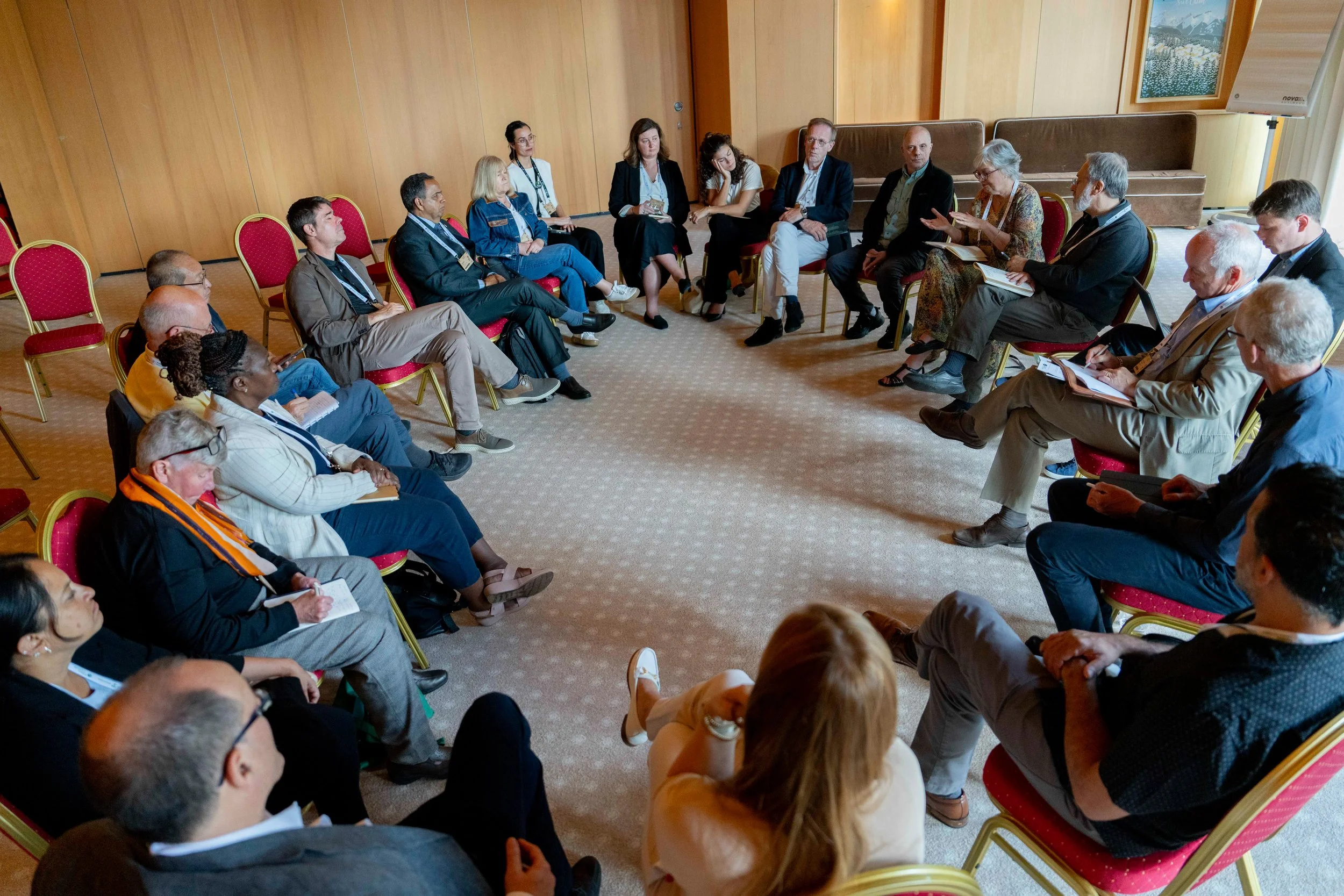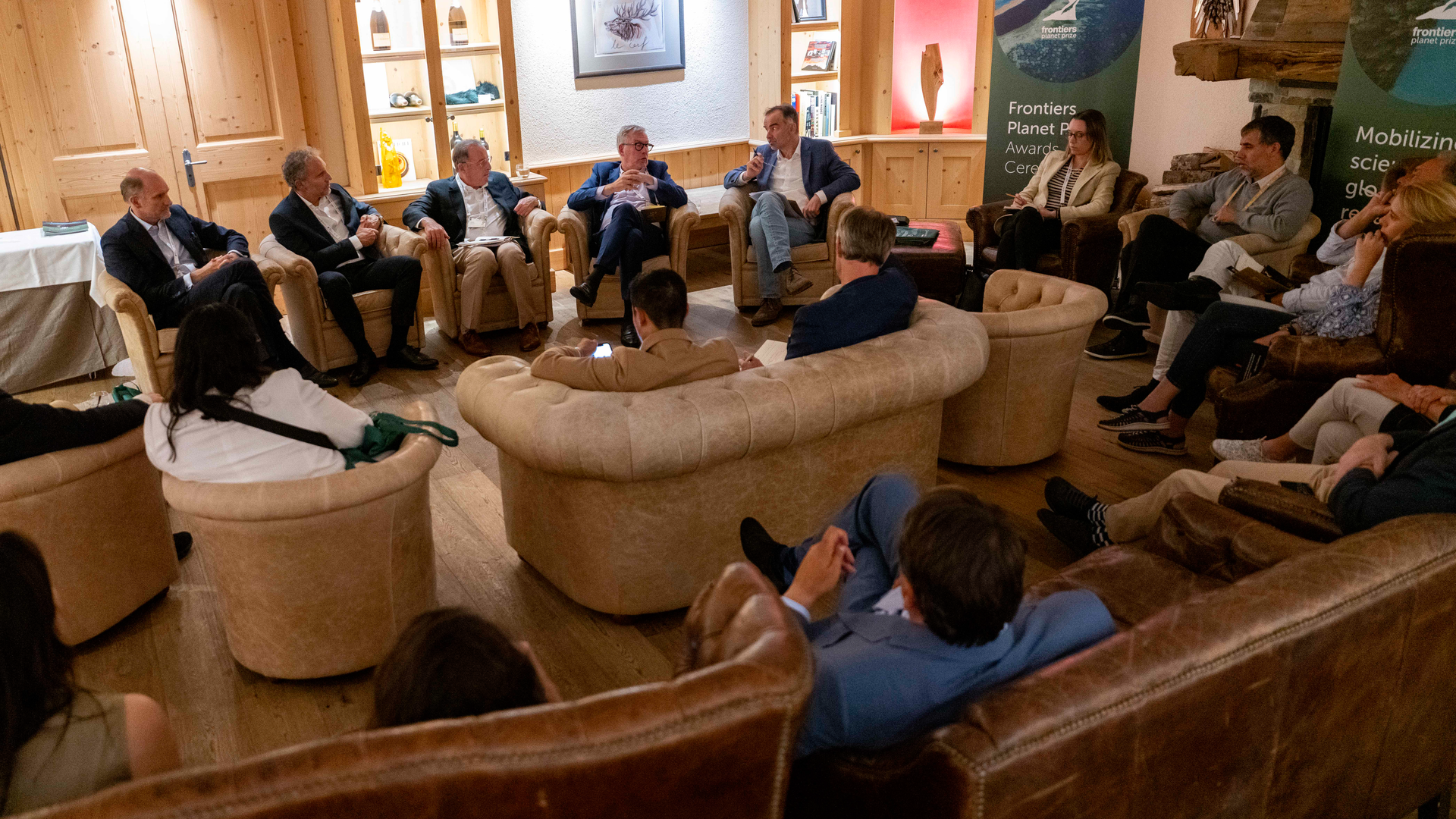Frontiers Planet Prize Community Sessions: Assuming our collective responsibility for healthy lives on a healthy planet
Outcomes of the Frontiers Planet Prize community sessions, held on Monday the 16th of June, 2025
Synthesised from the contributions of the FPP community
Contributors of note: Adrian Heilemann, Potsdam Institute for Climate Impact Research, and Gabriela Ivan, International Science Council
Community sessions stimulated critical reflections and actionable insights aimed at enhancing the role of stakeholders in catalyzing transformative, globally inclusive, and solution-oriented science. The sessions were guided by three major objectives: bringing enough of the right science to the forefront, overcoming mounting skepticism on climate science and policy, and engaging stakeholders to mobilize resources for planetary boundary science. Discussions in all three sessions were underscored by themes of systemic impact, politicization of science, public-private collaboration, and evaluating the transformative potential of scientific solutions.
Maximising transformative potential
Maximisation begins with evaluation of the ‘right’ science, that being science which is politically relevant, transformative, and speaks to urgency of the current moment. The goal of the Frontiers Planet Prize is to platform science that can help us navigate a future of prosperity and equity within safe and just boundaries. The prize should promote research that showcases integrated solutions, and champions collaborative efforts by celebrating contributors in order to avoid fragmentation.
Part of this evaluation process is the initial nomination step, discussed by members of the Jury of 100, and representatives from NRBs in the FPP community. Participants highlighted the risks of top-down nomination processes in identifying significant work, in which university bureaucracies may lead to particular outputs being overlooked, especially in regions or communities outside the dominant global North research networks.
This tied into broader community conversations about equity in scientific recognition, particularly the need to uplift underrepresented regions and marginalized knowledge systems, such as those from African researchers and Indigenous communities. There is a clear call for structural mechanisms that actively identify and elevate these contributions. Building inclusive pipelines for emerging scientists, fostering meaningful public-private partnerships, and ensuring scientists can engage effectively in policymaking were emphasized as essential steps.
The discussion also explored the nature of science being elevated by the Prize. There was consensus that systems-oriented, policy-relevant science often delivers the most practical and implementable solutions. While nature-based solutions have received significant attention, it was suggested that policy-driven and, where appropriate, technical solutions are equally valued.
The summarizing sentiment was: The narrower the mission, the less transformative science gets. Pathways to change must be encouraged.
Science, politics and communication
Participants reflected on the tendency for climate science to be viewed through a partisan lens, and therefore its political priority is dictated by the alignment of those in power. It was particularly highlighted with the low priority of science on the US political agenda. Many suggested that this may be remedied if climate science is viewed as interconnected with social sciences, economics, and society at large. A call to reframe the narrative was voiced several times by individuals across all sectors, signaling the need for better science communication strategies and scientific literacy. This was spurred on by a commitment to inclusivity - “leave no one behind” - advocating for co-creation across all regions, training scientists in science communication and diplomacy, and rethinking curricula to empower future science leaders. Discussions on narrative also touched on the role of the scientific community in reacting to regressive policy trends. Is it better to ‘shake things up’ or remain firmly rooted in science?
A shift in science communications was also proposed as a means to reconnect people with planetary health solutions. Science was highlighted as a ‘global public good’ in need of increased investment to promote public accessibility. The public must understand that climate science has an impact on their daily lives. “Science that is not accessible will fail.” Reconnecting society with science would lead to an array of economic and social benefits, for example, helping to bridge the skills gap for practitioners to grow with the green economy.
A disconnect concerning scalability of solutions was also called into consideration, with participants stressing the importance of creating mechanisms that integrate science into decision-making. While multilateral structures like the IPCC exist, similar frameworks are often lacking at national and local levels, leading to regionally applicable solutions being overlooked. Global partnerships, it was stated, should support locally relevant solutions.
Mobilising resources
A recurring theme was the growing tension between the urgent need for climate solutions and the increasingly uncertain funding landscape. As public funding becomes more constrained, the question of “where the money will come from” is becoming more acute.
Several participants highlighted the importance of blended finance models, corporate philanthropy, and public-private partnerships to bridge the climate funding gap. These mechanisms can help bring research from lab to implementation. A key area of opportunity lies in aligning science with real-world systems, particularly supply chains, sustainable technologies, and ESG-aligned products. Green chemistry, biobased fuels, and innovations in sustainable manufacturing were mentioned as promising pathways.
Participants debated the value of ‘mission vs market’ driven science. It was noted that a significant portion of scientific research remains uncited and underutilized, described as ‘going to waste’. To rectify this and harness science for change, a proposal was made to flip the scientific model and work backwards, focusing resources on outputs that can be integrated into supply chains for tangible impact. However, others argued that science should still be mission driven, spotlighting the value in research for academic enlightenment and scientific creativity. Speakers cautioned against allowing market priorities to dominate scientific agendas or commodify research at the expense of its public value. Several assertions were made that policy in the West is primarily concerned with the public health impacts of planetary boundary transgression, and this should therefore be leveraged for climate science funding.
Calls were made to distinguish between funding for scientific research and funding for implementation. The prize could serve as a platform to catalyze both - recognizing breakthrough science while also enabling its translation into actioned solutions. Real world impact, mobilized by funding specifically for implementation, acts as evidence of the transformative nature of the science. This is essential to showcase a form of return on investment for funders. To achieve this, meaningful collaboration with industry, foundations, and governments will be essential, particularly in the post-award phase.
Conclusions
The Frontiers Planet Prize plays a vital role in this ecosystem by empowering solution-oriented science, providing researchers the freedom and resources to pursue their work within a network of like-minded peers and partners. It must embrace complexity, empower underrepresented voices, and build bridges between research, decision-making, and real-world implementation.



